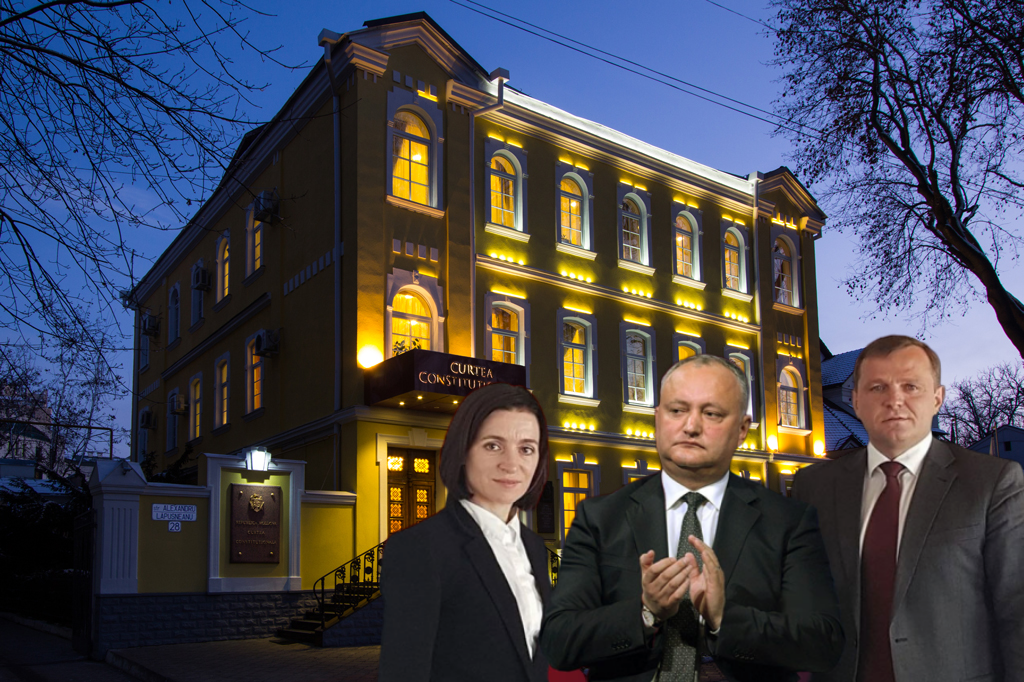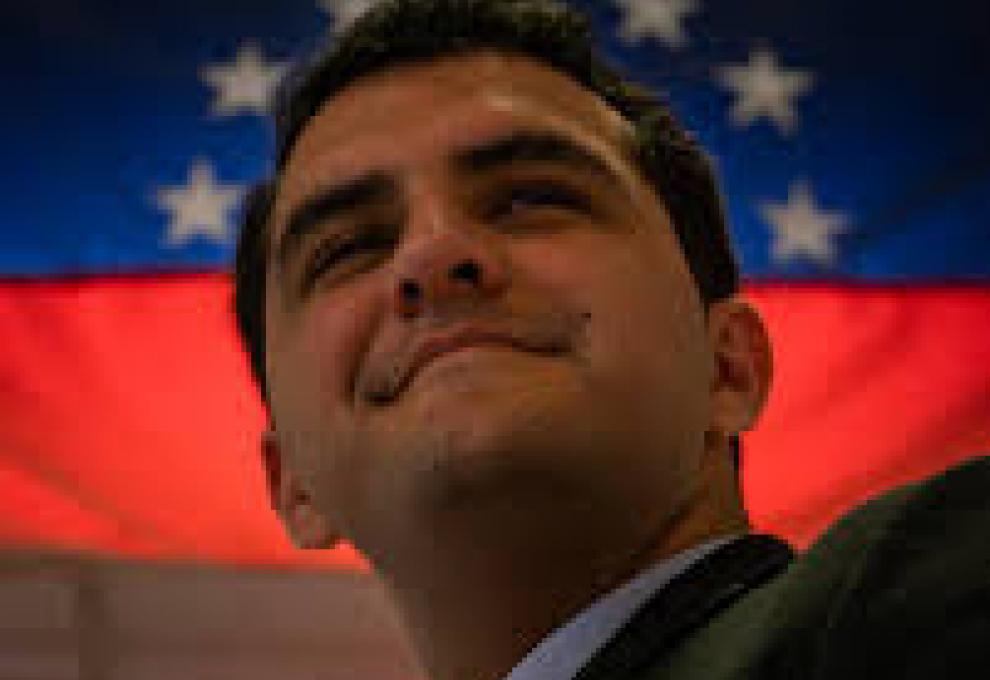The Political Activism of the Moldovan Constitutional Court: A policy analysis
Several decisions of the Constitutional Court of Moldova have arguably contributed to the political crisis that Moldova is facing now. Today we will analyze them and their impact on the Moldovan political processes as well as some policy solutions for this situation.
A short disclaimer: We do not want to take sides on the political conflict in Moldova, our analysis is
intended to provide a discussion platform for the future of the evolution of a stable political system in
Moldova.
An issue of terms
The most significant controversy that has provoked the political crisis and the duality of power in the
Republic of Moldova is the term that the Constitution allows for the Parliament to form the Government.
In short, according to different opinions, this term might have been:
1. Three months from the validation of the mandates of the Members of the Parliament. According to the interpretation of the Constitutional Court in 2019, that would be June 7, 2019. According to earlier
analyses, including a blog post by the former Chair of the Constitutional Court, Alexandru Tanase, that term should have been June 9, 2019.
2. Three months from the first session of the Parliament, meaning June 21, 2019. Nicolae Osmochescu, a former Constitutional Court Judge, argues that the interpretation of article 81 of the Constitution should be a functional one and must come from the first meeting when the MPs can start negotiations on forming the Government.
These three dates have had a severe impact on the political process in Moldova. First of all, we should
mention that the decision of the Constitutional Court came at the eleventh hour, at 5 PM on the last day of the deadline to form the Government. The President declared that the Parliament could not reach a
consensus on the same day and the country was heading towards snap elections. On the next day, the
Socialists and the electoral block ACUM have finally struck a deal and formed a Government. At the same time, the Democratic Party has taken out some "canned" actions to suspend the President and disband the Parliament. The Court has taken positive decisions on these issues in a heartbeat and has made the Parliament and the Government Sandu`s actions illegal.
Critical thinking
What are the main criticisms that the Constitutional Court has attracted? We could group them in three big baskets: procedural, textual, political arguments. Although the political criticisms should not affect the legality of the decisions of the Constitutional Court, they might affect the credibility and the integrity of the judges that adopt them.
1. Procedural arguments
The swiftness of the procedure
The International Committee of Jurists has published a statement according to which the organisation is concerned, at the excessively swift procedure through which the Constitutional Court reached its decisions to dissolve Parliament, remove a sitting President of the Republic and replace him with the Prime Minister. This argument can be a valid one, especially if we see that the Constitutional Court adopted six decisions in four days and has failed to provide the reasoning of five of them to the day. This speed of taking the decisions may have affected the quality of the decision-making procedures, and the Court could reverse- engineer the arguments for the decisions already made.
2. The absence of all the stakeholders
Again, possibly, due to the speed of the proceedings, the Court has failed to invite the representatives of the Presidents office, as well as the Parliament to present their positions on the issues at hand. But weshould mention that there is no sanction for this failure in the Constitutional Jurisdiction Code. This
argument shows that the opinions presented before the Court may have been one-handed and not provide sufficient adversarial debates.
Textual criticisms
1. The Civil Code as a source of interpretation
The Court has argued that according to the national legislation, the terms vary should not vary in definition. The Civil code states that half a year equals to 6 months, a trimester - 3 months, half a month represents 15 months and a `decade` - 10 days. If half a month is 15 days, the Court assumes that a month is 30 days straight. The Court has considered the solution is given by the Civil Code to eliminate the possible differences in counting the periods for dissolving the Parliament. While the consistency in the interpretation of the legislation is a cornerstone principle, in the case of the Constitution, it should always go from top to bottom and not the other way around. Or, we could encounter the interpretation of the Supreme law through the lens of a potentially unconstitutional norm coming from a lesser code.
2. The international practice
The international practice on procedural terms varies significantly. Romania, Bulgaria, Germany and France recognise that a time established in months ends on the last day of the respective month. Nevertheless, the Court has disregarded this international practice and has failed to provide examples from other states to make its case stronger. This limited argumentation may come as a result of the rushed decision-making that the Courts undertook.
Political arguments
While we are not really into turning policy and legal issues into political debates, there is value in looking into the background of individual judges of the Constitutional Court.
Mihai Poalelungi - the Chief Justice of the Constitutional Court. A former Chief Justice of the Supreme Court who was involved in a series of political decisions, including some relating to the billion dollar theft.
Aurel Baiesu is a former MP of the Democrat Party (2009-2010).
Also, Mr Baiesu was a legal counsellor to the interim President of the Republic of Moldova, Marian Lupu, representing the Democrats at that time.
Raisa Apolschi is a former MP of the Democrat Party (2010-2018). She is also the godmother of Vladimir Plahotnius children.
Artur Resentnicov is a former MP, representing the Communist Party (2010-2017), who switched his party while seated to represent the Democrat Party in 2017. He is also a former Director of the Security and Information Service of Moldova.
Corneliu Gurin is a former Prosecutor General (2013-2016) and a former MP representing the Democratic Action Party. The High Council of Magisters appointed him to the Constitutional Court without him ever holding a judge position.
Veaceslav Zaporojan is a former expert in international projects, a law professor and an assisting judge at the Constitutional Court (2002-2015).
As we could see from the short descriptions only one of the justices has an extensive career as a judge, the experience of the other members of the Constitutional Court is mainly political or otherwise administrative. While the law allows for any lawyer with the necessary expertise in practising the profession regardless of the domain to hold the position of a Constitutional Court justice, the appointment of three former Democrat MPs could be described as political. Furthermore, one of the judges has been the Director of an intelligence agency, and another one was a Prosecutor General in periods when major political cases were prosecuted and presented to the public. This coincidence could hinder the trust in the integrity of the said judges and their decisions.
Another political argument would the alignment of the decisions to the interests of the Democrat Party.
Five out of six choices were taken on the initiative of Democrat MPs and were based on acts of Parliament that were not yet published. The now annulled actions of the Constitutional Court have led to:
1. The dissolution of the Parliament;
2. The dismissal of the President;
3. The annulment of the appointment of the Government.
Some politicians have called this political activism of the Constitutional Court as part of a more massive conspiracy to overtake control of the country.
We could consider this position, especially in the context of the ease with which the Court has retracted its decisions.
The aftermath
The political activism of the Constitutional Court has attracted many criticisms since those decisions were adopted. The Secretary-General of the Council of Europe has gone so far as to call them " arbitrary and hard to understand" and referred them to the Venice Commission. The Commission has yet to form an opinion on them on June 20, 2019. Two former Presidents of Moldova have publicly spoken against the activism of the Court. A position of the Lawyers Union stated a different take on the issues at hand, and a conference of law professors have debated ways to get out of the political crisis that they created. In the meantime, the Democrat Party has decided to withdraw from power based on international and internal pressure. The leaders of the new government coalition have asked for the Court to rescind its decisions to avoid the continuing constitutional crisis. The Court has responded with a brief meeting on June 15, where it annulled the previous rulings. Among the motives cited for annulment was the de facto situation in Moldova, the maintaining of social peace, the rule of law, as well as a framework to protect human rights by avoiding a greater political instability.
Policy analysis
The erratic behavior of the Constitutional Court may have different motives, including political influence and lack of professionalism from the part of individual judges, but it caused a significant loss of legitimacy and aperilous legal precedent. The de facto situation cannot lead to a different interpretation of the Constitution and may not lead to the annulment of Constitutional Court decisions. The current Court may not be able to come back from the legitimacy deficit and is better off by honourably resigning.
But many of the issues described in this article may be solved by reforming the Constitutional Court by:
1. Expanding the number of justices to 8 by letting the President appoint two more judges. The President is once more an elective position and should have a say in the appointment of the Constitutional Court justices. This move could dilute their eventual political affiliations and lead to more unbiased decisions.
2. Establishing a moratorium on appointing judges for the last year of political terms. The last-minute
appointments could be more biased and oriented towards immediate political goals and therefore, should be avoided.
3. Allowing terms suspension. Not to provide unrealistic time frameworks for the Constitutional Court and the political actors, the Court should be able to suspend terms contained for the issues it has to interpret. This way, the Court will not rush its decisions and will give the political actors sufficient time to act upon it.
4. Appeal right with a super-majority in Parliament. The Constitutional Court activism in the recent period has led to the necessity to provide an appeal procedure. The only plausible way of appeal could be to the Parliament with a super-majority consisting of 2/3 or 3/5 of the Assembly.
5. We understand that the current political situation does not provide a majority sufficient to reform the
Constitutional Court, but the question of the over-powered institution remains open.
By Dumitru Condrea
Dumitru Condrea is the President of the Moldovan Economic Freedom Institute “Milton Friedman”




















